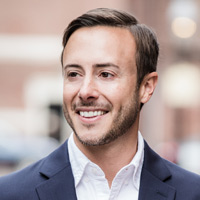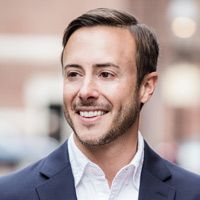How to Be Rich (Hint: A 401(k) Alone Won't Get You There)
Of course, saving is one of the keys to wealth, but if you're just pumping all you’ve got into a 401(k), you're missing the boat.

Profit and prosper with the best of Kiplinger's advice on investing, taxes, retirement, personal finance and much more. Delivered daily. Enter your email in the box and click Sign Me Up.
You are now subscribed
Your newsletter sign-up was successful
Want to add more newsletters?

Delivered daily
Kiplinger Today
Profit and prosper with the best of Kiplinger's advice on investing, taxes, retirement, personal finance and much more delivered daily. Smart money moves start here.

Sent five days a week
Kiplinger A Step Ahead
Get practical help to make better financial decisions in your everyday life, from spending to savings on top deals.

Delivered daily
Kiplinger Closing Bell
Get today's biggest financial and investing headlines delivered to your inbox every day the U.S. stock market is open.

Sent twice a week
Kiplinger Adviser Intel
Financial pros across the country share best practices and fresh tactics to preserve and grow your wealth.

Delivered weekly
Kiplinger Tax Tips
Trim your federal and state tax bills with practical tax-planning and tax-cutting strategies.

Sent twice a week
Kiplinger Retirement Tips
Your twice-a-week guide to planning and enjoying a financially secure and richly rewarding retirement

Sent bimonthly.
Kiplinger Adviser Angle
Insights for advisers, wealth managers and other financial professionals.

Sent twice a week
Kiplinger Investing Weekly
Your twice-a-week roundup of promising stocks, funds, companies and industries you should consider, ones you should avoid, and why.

Sent weekly for six weeks
Kiplinger Invest for Retirement
Your step-by-step six-part series on how to invest for retirement, from devising a successful strategy to exactly which investments to choose.
Tired of being told to “save more money” when you ask how you can improve your financial situation?
There’s got to be something else you can do to attain the level of wealth you want, right? There is — but most people don’t talk about it. Most people settle for just saving and call it a day.
But some people really want to take it to the next level. They want to be more than well off. They want to be rich.
From just $107.88 $24.99 for Kiplinger Personal Finance
Become a smarter, better informed investor. Subscribe from just $107.88 $24.99, plus get up to 4 Special Issues

Sign up for Kiplinger’s Free Newsletters
Profit and prosper with the best of expert advice on investing, taxes, retirement, personal finance and more - straight to your e-mail.
Profit and prosper with the best of expert advice - straight to your e-mail.
If that’s you, that’s OK! Too often, it seems like our society makes it “wrong” to want wealth. But money drives every aspect of our lives. For so many life goals, you need money to make it happen.
So, if you’re doing well at the moment, you’re not struggling to get by, and you have your cash flow under control… what’s next? Here are a few ways you can crank up the volume and go from “doing well” to being rich.
Look for the Little Things That Have a Big Financial Impact
But first, let’s get clear on something really important: Learning how to be rich has nothing to do with making big, dramatic moves with your money.
Most people miss out on the opportunity to be rich because they don’t pay enough attention to the details. They use the wrong accounts; they don’t think about taxes; and they don’t take advantage of the small steps they could take to go from well-off today to wealthy tomorrow.
It’s tempting to think the path to wealth is only accessible by striking it rich, or by choosing the one right investment at the exact right time. While that does happen, you have to rely on a lot of luck and timing to get rich this way. You have to rely on chance.
Meanwhile, there’s a more reliable path to increasing your net worth and growing your nest egg. In fact, that’s one of the best-kept secrets of the truly wealthy: They know it’s more important to be consistent than lucky.
That’s the path I am taking, and I encourage you to consider it, too. Choose the path that you can control and feel more confident in — and then take these small steps to create a huge impact on your financial situation.
The Consequences of Saving Money the Wrong Way
If you’ve worked hard and constantly contributed to your 401(k) throughout your career, that’s great! You may even have a significant amount of wealth in your retirement plan that you can access later in life. But if all your wealth is stored up in your 401(k), that could present a problem.
For one, you’ll likely have to face RMDs. Those are required minimum distributions, and when you hit age 70.5 holding a 401(k) account (among others), you’ll be forced to take taxable distributions (and pay taxes on them) from your account for the rest of your life … even if you don’t need the money in any one year.
The IRS categorizes these distributions as income in the year distributed. The problem with all this? RMDs could bump you up to another tax bracket, forcing you to pay more in taxes simply because you didn’t save strategically enough and were forced to take the money out of the account.
The second issue with stashing all your cash in your 401(k)? It’s just poor planning. It might sound counterintuitive, but if the majority of your nest egg lives in your 401(k) you could be preventing yourself from reaching your greatest potential for wealth.
Diversify Not Just Your Investments, But Your Investment Accounts
Keeping all your money in your 401(k) means you’re not as diversified as you think you are. Sure, your investments within your 401(k) might be properly allocated… but your financial life itself — and your wealth — is concentrated in just one account.
You need to consider what other accounts would benefit you from a personal goals perspective and a tax perspective. Depending on your income and what you want to use your money for now and in the future, you need to analyze and evaluate the pros and cons of using a tax-deferred account like a 401(k) and accounts like a Roth IRA or a taxable brokerage account or even real estate.
For example, if you want to retire early and all your money is in some sort of tax-advantaged retirement plan, you may not be able to access it without penalty. At the very least, you will have to deal with some challenging restrictions. Think about it. You do such a great job saving and growing your money that you can (on paper) retire at age 50. But you can’t access your retirement money until age 59.5. That’s another 9.5 years!
What are you going to live on? You could tap into your 401(k), but you may forfeit some of your wealth to fees and penalties for withdrawing cash early.
Where you put your money will also influence the kind of tax burden you bear. And it might not always make sense to opt for tax-deferred every time you have a choice in where you save. It might be more strategic to pay some taxes now — so that you don’t have to do so later, when you could risk giving up a greater part of your wealth to the government.
As recent events have shown, tax laws can change depending on what Congress chooses to do. And those changes can be both sweeping and sudden. Holding your wealth in a diversified array of savings and investment vehicles will better position you to deal with changes and volatility, not just in a market, but in politics and other areas of life that could impact how much of your wealth you ultimately keep in your own pocket.
Getting into the Weeds with Your Investment Asset Allocation
Most people believe asset allocation begins and ends with the percentage of your wealth you hold in equities and bonds. While that’s certainly an important part of the equation, it only begins to scratch the surface of how detailed we need to get when thinking about proper asset allocation to maximize the growth of your wealth.
You also need to consider questions like, should the growth fund you want to invest in be in your Roth IRA or a traditional IRA? Should a mutual fund focused on real estate be in a tax-deferred account or a brokerage account? In other words, you need to think about asset location along with asset allocation.
Of course, most folks don’t need to think about these things to be OK and secure enough in their financial lives. And for many people, that’s the goal. They want to make sure they have just enough so they don’t run out of money before the end of their lives.
But if you want to be rich and really excel with your financial life, thinking through the details for the implementation of your investment strategy is key. The tax ramifications of your savings vehicles and investment selections matter.
You don’t have to rely on some dramatic stock market move to skyrocket you to riches. Focus on the simple, often overlooked tactics. It’s these little, specific, seemingly-nitpicky things that will allow you to transition from well-off today to wealthy tomorrow.
Profit and prosper with the best of Kiplinger's advice on investing, taxes, retirement, personal finance and much more. Delivered daily. Enter your email in the box and click Sign Me Up.

Eric Roberge, CFP®, is the founder of Beyond Your Hammock, a financial planning firm working in Boston, Massachusetts and virtually across the country. BYH specializes in helping professionals in their 30s and 40s use their money as a tool to enjoy life today while planning responsibly for tomorrow.
Eric has been named one of Investopedia's Top 100 most influential financial advisers since 2017 and is a member of Investment News' 40 Under 40 class of 2016 and Think Advisor's Luminaries class of 2021.
